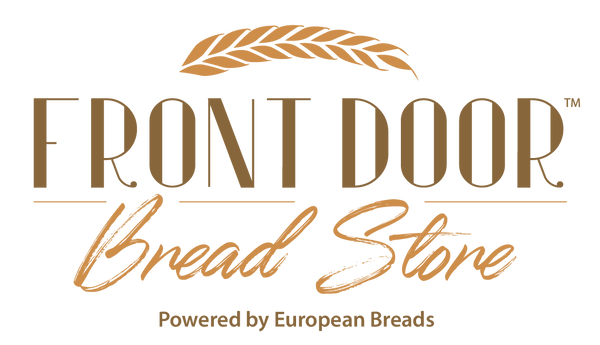Frequently Asked Questions
Is your bread gluten free?
Compared to modern wheat, our grains have a lower gluten content and are healthier and easier to digest.
The gluten in the ancient grains lacks the high molecular weight proteins that many people can’t digest. If you are sensitive to modern wheat, our flour can perhaps provide a delicious alternative.
Please note that these flours do contain gluten and therefore not safe for those with Celiac Disease.
Are your breads certified:
They have the following certification:
- EU origins
- Kosher
- Non-GMO
- Halal
What makes your pastries “European”?
Our pastries are made with European flour called Heritage. We use a grain that has been genetically unchanged since the early domesticated varieties from thousands of years ago.
Regarding our breads, they provide food-approved native wheat starch. Wheat starch is refined from high-quality and non-GMO European winter wheat. It is a fine, white powder with a clean and natural taste. Wheat starch has a whiter color and a more neutral taste than starch of other origins.
What kind of oil do you use?
Most of our breads use pure olive oil.
Does it mean your bread and pastries are healthier?
Heritage flour has a larger array of vitamins and minerals and up to 40% more protein than regular wheat, and up to 65% more amino acids providing higher micronutrients and antioxidants content. These extra nutrients contribute to a greater feeling of wellness, so you’re not tired after eating empty flour calories.
What’s the difference between modern and ancient grains
Ancient grains are grains which were first domesticated at the dawn of agriculture. For example, Einkorn, Emmer (this group includes khorasan and durum), and Spelt are considered ancient grains in the wheat family. Heirloom varieties of other common grains besides wheat might also be considered ancient grains. All ancient grains are by definition also "heritage".
What is Heritage wheat?
The term “heritage wheat” refers to any variety that existed before the introduction of high-yielding, hybridized grains during the Green Revolution in the mid-20th century. Some experts, however, prefer to apply the term more strictly to include only those varieties known to exist before the 1880s, such as the Lammas varieties, Fulcaster, Lancaster Red, Red Fife, Marquis, Rouge de Bordeaux, and Turkey Red.
Einkorn, which is known as the first of the founding grains, was cultivated during the Neolithic and Early Bronze Age throughout the Fertile Crescent. Einkorn is small in size, contains only 2 sets of 7 chromosomes, and has a much lower gluten structure than its modern grain counterparts that have 42 or more chromosomes.
 Einkorn
Einkorn
What does 90% par-baked mean?
90% pre-baked products are partially baked, with the final 10% making all the difference. It takes between 8 to 15 minutes at 400 degrees in a conventional oven to enjoy your bread warm and fresh, just like they came straight from a baker's oven.
We want you to experience the authentic European taste and aroma of oven-fresh baked bread.
Or you can just cut a few slices and toast them while putting the rest in the freezer.
How long does it take for my bread to be delivered?
Delivery usually takes 2-3 business days and once your parcel is shipped, we provide you with the tracking information via email.
But if the mail lags, your product will still be preserved and fresh.
Will my bread stay fresh while in transit?
Our bread remains fresh during transit thanks to the inclusion of sourdough flour. We use special insulation materials and ice packs to keep them cool. If you're not home when your product arrives, it can safely wait on your doorstep for a while. Once you get home, place the breads in the freezer to maintain optimal freshness and shelf life until you're ready to enjoy them.
Do I need to thaw the bread before baking it?
Yes, we recommend you thaw it first.
Because of their size, bread loaves require a longer thawing time before putting them into the oven.
If you want to save time in the morning, you can thaw the products in your refrigerator overnight and bake them immediately the next morning.
How long can I store the bread?
To maintain the freshness of your order, store it in the freezer for up to 6 months. We recommend keeping all products frozen until you are ready to prepare and enjoy them. Since we do not use additives to artificially extend shelf life and freshness, we suggest consuming your baked goods within a few days after preparation.
Breads remain fresh for a few days, and slices or rolls can be toasted if desired.
Certifications and Nutrition


